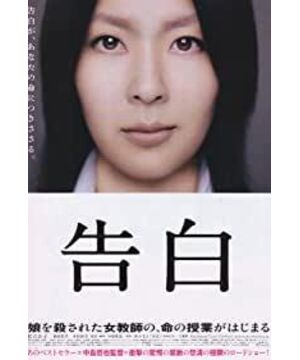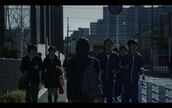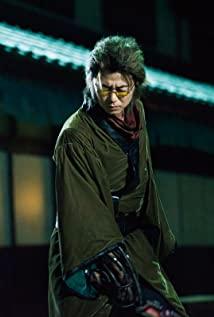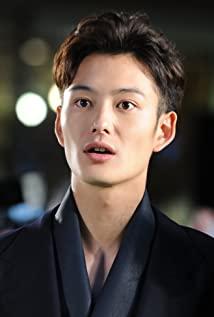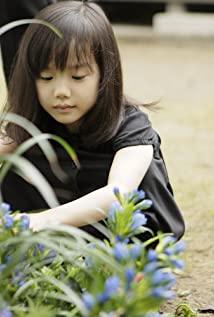We often say that postmodernity dissolves the sublime and the value. When it comes to questions such as "Why do you live?" "Do you still have ideals?" "Do you still believe in morality?", the answers are always drowned in harsh ridicule, and we cannot allow us to treat them with serious reflection. There is only one thing that is immune to postmodern syntactic sharp irony, and that is "feeling." In today's society, life's trajectory toward a specific goal seems to be a cheap antique decoration, and most people choose to seek a variety of different sensory or emotional experiences to enrich themselves like a bubble and "crack" at any time "Sound of life. If one day, these experiences no longer meet their expectations, and they have no reason to expect everything to be better, it seems that the time to give up life has come. In other words, it is pleasure, not life itself, that is truly valued at this time.
When did this become popular? When Enlightenment thinkers stomped on the fire in the cave, Nietzsche opened his mouth and shouted "God is dead", and when Confucian "family, state and world" was regarded as a remnant of feudalism, people began to submit to the curse of Kageya and drink alcohol day and night Do not stop. Fragmented senses pile up a crumbling pillar of life, and everything must be examined by human senses to be legitimate, so senses only choose cronies close to it to build the shameful regime that suppresses the apostles of God. In the end, they all made great strides and turned into a species of Gu Ying's self-pity, only hoping to commit suicide by throwing in water.
Under such circumstances, the word "Fate" written by Moriguchi on the blackboard in "Confession" has a special meaning. Although it still has to be interrupted and dismissed by a group of representative personalities who just want to marry Johnny, it is still "sharply" brought up-"What is life? Why is life important?"
There are spoilers below. .
The side that Watanabe represents is obvious, that is, those guys with strong instrumental rationality. Influenced by the "mother" in the same line, pursue the height of science and technology and honor. The high expansion of instrumental rationality itself is not good or bad, but if it becomes its habitual way of thinking about problems, the presence of other beings in the field of vision of this life is very embarrassing. Everything is used as a tool to pursue the feelings and emotions he wants. Human life is no big deal, it is just a tool, so it can be sacrificed at will, just for the warm feeling of returning to his mother's arms. A bubble-like feeling hit him, and his "important thing" was just a feeling, and when it disappeared, it was just a "click". And the answer is not so. Moriguchi made him understand with an explosion of "boom and choke" that what he loves should be his mother's life itself after all, and it's the purpose of it, not the satisfaction of being noticed by her. Helplessly, it was too late, and the rebirth was reduced to a joke. And when have we not lived in this hell where we seek sensory stimulation and emotional stimulation everywhere, while ignoring the living experience of others?
Naoki is the one who is completely lost because of being overprotected. It is also the one who cannot find the value of life at all. For example, the first sentence of his confession "I don't feel alive" reveals this. Regarding his character image, there is a classic model, that is, the male protagonist of "Perfume". Like Watanabe, he killed Aimi for the "feeling" of attention; at the same time, when he mistakenly thought his time was short, he relied on depravity and stink to confirm that he was still alive. "Perfume" has a similar depiction of the male protagonist's panic when he finds himself odorless. Pay attention to things like "still a virgin" before you die (this should be poisoned by the media, right?), like being a slave to the senses, a postmodern model. There is no dignity in life here. So is his mother. Except for the feelings of my own family, I don't know how to respect other lives.
Mizuki here is actually an awakened/martyr identity. At least in her love for Watanabe, she showed a difference from everyone else. As a juvenile murderer, she obviously encountered a deep nothingness. An experiment to poison the whole family is enough to put him in hell. We can imagine that she suddenly lost all her close relatives. Does it feel like Watanabe lost her mother? And she is more than enough to realize that life should only be an end in itself in loneliness. So after she fell in love with Watanabe, she was determined to save Watanabe. She saw through Watanabe's intentions, because it was exactly the same as her past behavior in pursuit of online attention. But this kind of insight cannot awaken Watanabe. As mentioned above, Watanabe only regards people as a tool, and Mizuki is just a doll. At the same time, Watanabe's standard is also based on his developed instrumental rationality. A little poison was not a clever feat for him. So Mizuki was finally brutally murdered by Watanabe. Midway, Mizuki held out her bloody hand, hoping Watanabe would pull it up. Watanabe pulled, but when he pulled it was another blow. (It is pointed out that Mizuki is not Luna sea herself. In this case, the above reasoning about her life experience and psychological condition cannot be established, and her psychology should be interpreted as simply falling in love with Watanabe. This kind of love led to her Sacrifice.)
But you can pay attention to the role of Sakura Palace. His belief in God is mentioned in the movie. Moriguchi said he was "lecturing before he died." But pay attention to his setup - a lot of books are published, followed by cult fans, but those who read his books may not understand his concept of love, but will do some evil things. Its children died at the hands of the "postmodern human beings" who were opposed to it and wanted to save. Remember what?
Finally, let's talk about Moriguchi. In fact, she appeared in a high profile of rewarding good and punishing evil, and her identity was similar to a clergyman. Her "confession" hints that she will punish wicked people where the law can't, and this method is reflected in both Watanabe and Naoki. She is the most flesh-and-blood character in the film. On the one hand, he ruthlessly punishes the wicked where the law is powerless, on the other hand, he weeps endlessly because of the warmth of a candy. If the audience has no prejudice against the clergy, she is actually their representative. Also, she didn't necessarily really blow up Watanabe's motherfucker.
At this point, the division of roles in the film has become obvious:
the party representing ideals and aiming at people: Moriguchi, Sakuranomiya, and Mizuki. Like a church? Mizuki belongs to the martyrs who later surrendered but ended in tragedy.
Fanatic Worshiper: Terada
Modern people who can't figure out the situation: Watanabe, Naoki, Naoki, etc.
The murdered children of Moriguchi and Sakuranomiya are not just Aimi alone, but all modern people. After enlightenment thought it illuminated everything, human beings began to rejoice in the senses, put themselves in the shrine and use others as tools. Inequality manifests itself in the inner world of everyone more intensely than ever in the form of selfishness. The loss of life itself contributed to the eventual occurrence of the so-called "true hell". And everyone's "confession" shows this situation nakedly. Moriguchi's behavior is tantamount to a world flood. Tetsuya Nakajima deliberately chose an exaggerated and overly refined tone to make such a film whose conception itself opposes the pursuit of sensory and emotional stimulation in a compact and beautiful rhythm. This contrast itself constitutes a scene. Ingenious "missionary activities" in modern society. From this point of view, the ending "なんで" has a different meaning.
The above is my confession.
View more about Confessions reviews


